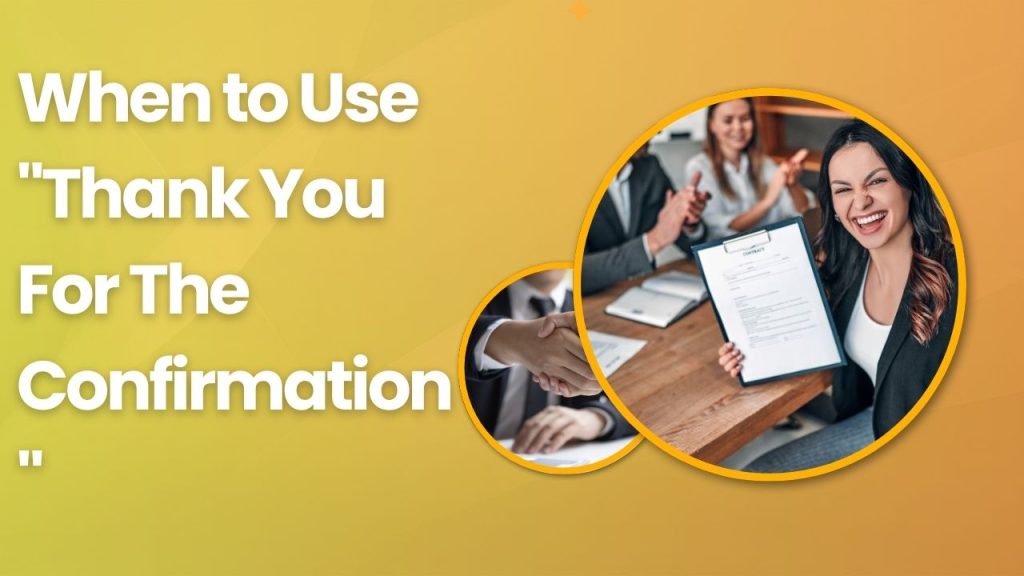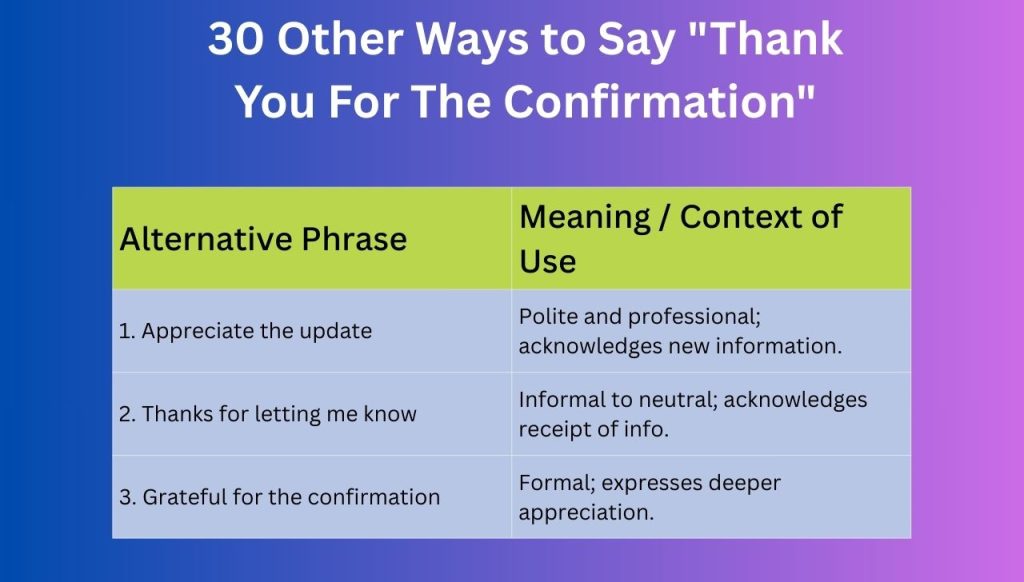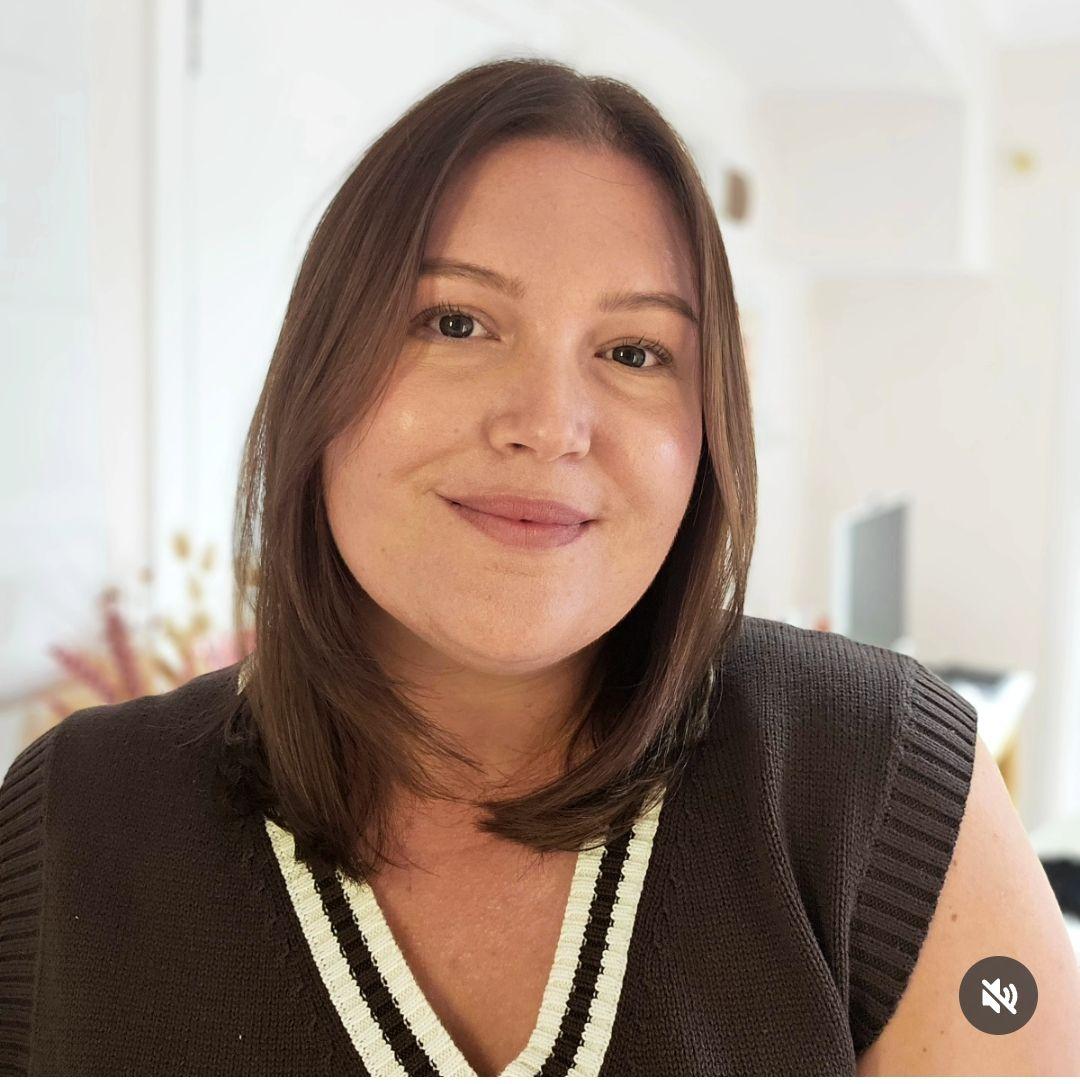Ever found yourself typing “Thank you for the confirmation” for the hundredth time and wondering—Is there a fresher way to say this? You’re not alone. In work emails, client messages, or even personal scheduling, we often fall back on this phrase without a second thought. It’s polite, it’s clear—but, let’s face it, it can sound a little stale.
So whether you’re confirming a meeting, an invoice, a job interview, or a delivery, switching up your phrasing can add warmth, professionalism, or even a little personality. Words matter, and a simple tweak can make your message more memorable.
“Thank You For The Confirmation” Meaning
Let’s break it down. “Thank you for the confirmation” is a polite way to show appreciation when someone has:
- Verified a plan or date
- Responded with agreed details
- Reassured you that something is locked in
In essence, it acknowledges receipt of clarity. Think of it as giving a thumbs-up with words. It’s about appreciating closure or certainty—something we all crave, especially in professional settings.
Check This Out : 30 Other Ways to Say “Please Be Advised” (With Meaning, When & Why to Use It)

When to Use “Thank You For The Confirmation”
The phrase fits well in various contexts. Here are a few typical ones:
1. Work Emails
You’re arranging a meeting or confirming task deadlines. Once someone replies with “All set for Friday,” you’d respond, “Thank you for the confirmation.”
2. Event Planning
Say you’re organizing a wedding and a vendor confirms the final headcount—you’d use it to acknowledge their response.
3. Customer Service
If you’re a customer and someone confirms a refund or order, it’s a courteous way to wrap up the thread.
4. Job Interviews
Maybe HR confirms your interview schedule—again, this phrase shows appreciation for their time and clarity.
So basically, anywhere there’s a yes, a done, or an “it’s scheduled,” this phrase does the job.
Why Say “Thank You For The Confirmation”
Now here’s the thing: you don’t have to say it. But you probably should.
It Shows Respect
Acknowledging someone’s time or effort—even a quick email—is a sign of professionalism.
It Keeps the Tone Polite
A simple “noted” might sound cold. “Thanks for confirming” sounds warmer and more human.
It Closes the Loop
By replying, you also confirm that you received and accepted their message. That reduces back-and-forth, which—let’s be honest—nobody enjoys.
But again, saying the same thing over and over can make your messages feel robotic. So, let’s fix that.

30 Other Ways to Say “Thank You For The Confirmation”
| Alternative Phrase | Meaning / Context of Use |
|---|---|
| 1. Appreciate the update | Polite and professional; acknowledges new information. |
| 2. Thanks for letting me know | Informal to neutral; acknowledges receipt of info. |
| 3. Grateful for the confirmation | Formal; expresses deeper appreciation. |
| 4. Thank you for verifying that | Emphasizes the act of confirming/verifying something. |
| 5. Thanks for confirming | Simple and direct; professional tone. |
| 6. I appreciate the confirmation | Slightly more formal; polite and appreciative. |
| 7. Good to have that confirmed | Casual; often used in internal teams or informal settings. |
| 8. Many thanks for the update | Warm and professional; shows gratitude. |
| 9. Acknowledged with thanks | Formal and brief; often used in emails. |
| 10. Thank you for the heads-up | Casual to neutral; often used when receiving early info. |
| 11. Cheers for the confirmation | Very casual; common in UK/Australia. |
| 12. Thanks for keeping me posted | Friendly; suggests ongoing communication. |
| 13. I appreciate your prompt response | Acknowledges both confirmation and speed. |
| 14. Confirmed, thank you | Formal and concise; used to acknowledge receipt. |
| 15. Got it, thanks | Casual; suitable for texts or chat. |
| 16. Thanks for the clarity | Implies that the confirmation helped clear things up. |
| 17. Thank you for getting back to me | Acknowledges the effort in replying. |
| 18. Much obliged for the confirmation | Slightly old-fashioned or formal. |
| 19. I’m grateful for your response | Formal and appreciative. |
| 20. I value your prompt confirmation | Professional and respectful. |
| 21. Thanks, that helps | Friendly; shows the confirmation was useful. |
| 22. Thanks for the quick update | Appreciates both the speed and the confirmation. |
| 23. Noted with thanks | Common in business emails; acknowledges info formally. |
| 24. Thanks for your reply | General expression of gratitude for a response. |
| 25. Appreciate the follow-up | Used when someone reaffirms or provides additional info. |
| 26. Thank you for settling that | Suggests a resolved uncertainty. |
| 27. Thank you for the insight | Implies that the confirmation included helpful context. |
| 28. Thanks for getting back so quickly | Appreciative of the timeliness. |
| 29. Thanks for making that clear | Used when the confirmation clarified confusion. |
| 30. I’m thankful for your response | A warm, heartfelt way to show appreciation. |
Check This Out : 30 Other Ways to Say “Enjoy Your Weekend” (And When to Use Them)
Conclusion
So, next time you’re tempted to type out “Thank you for the confirmation” without thinking—pause. Could the moment use more warmth? A bit more clarity? Maybe a spark of personality? It’s a small detail, sure. But words shape impressions. Whether you’re writing to a client, a boss, or a buddy—how you respond matters. It tells people how much you care about the conversation.
Pick the version that matches your tone, audience, and purpose. Got a fast-moving thread? “Cool, got it.” Talking to a VP? “Thank you for your confirmation.” Want to keep it fresh? Mix it up. You’ve got 30 options now—maybe more in your back pocket. And hey, if nothing else, let this be a gentle reminder: politeness doesn’t have to sound stiff. Sometimes, a few well-chosen words can keep things smooth, professional, and—most importantly—human.

Grammar Nerd, ESL Trainer, Low-Key Comma Crusader
Daniel has taught English for over a decade, from small community classes in Oaxaca to bustling university halls in London. He has a knack for turning even the driest grammar points into relatable, real-life language tools—think fewer red pens, more real talk. He co-founded Grammation to make grammar less gatekeeper-y and more global. When he’s not decoding sentence structures, he’s probably hiking with a paperback novel or adding unnecessary hyphens for fun.
“The rules of grammar should empower people—not trip them up.”


